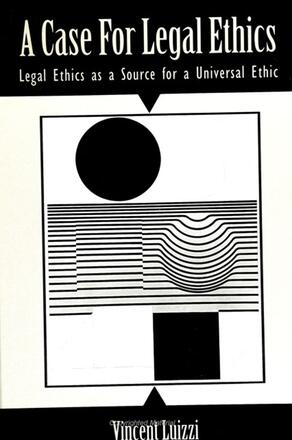
A Case for Legal Ethics
Legal Ethics as a Source for a Universal Ethic
Alternative formats available from:
Description
In suggesting that general ethics be modeled on legal ethics, this book is a call for more creativity in our moral experience. Luizzi argues that lawyers regularly re-think their roles and the rules related to these roles. Their rejection of a prohibition on advertising, for example, was part of their re-thinking of the traditional view of the lawyer's noble calling, one for whom advertising was inappropriate. What this says for general ethics is that we are to become active participants in defining our roles. Our daily experiences can help us in constructing fresh and better conceptions to guide us.
A Case for Legal Ethics rejects fixed conceptions of human nature and extends our constructive efforts beyond specific roles to human nature itself and to our environments. Luizzi appeals to role modeling, both to keep our constructed conceptions within moral bounds, and to develop the literature on moral education. We must be willing for others to imitate us as we live according to the conceptions we construct.
Vincent Luizzi is Professor and Chair of Philosophy at Southwest Texas State University and Associate Municipal Judge, City of San Marcos.
Reviews
"Vincent Luizzi's A Case for Legal Ethics is a fine piece of scholarship, humane and thoughtful in all its concepts. Luizzi offers superb insights into the quality of being human and skillfully avoids the simplistic debates that there are instrinsic standards for professionals that require them to act differently from others. Luizzi's work challenges the long-standing assumption that in the relationship between general ethics and the main area of professional ethics, the former should have jurisdiction over the latter. Luizzi is able to inquire most pragmatically into the possibility that general ethics should be more like legal ethics. By closely assessing the procedural features of legal ethics, Luizzi derives a uniform theory for dealing with our nature, our more restricted roles and our external environments. The whole work breathes an atmosphere of respect and freedom for the good coupled to a deep insight into the human dilemmas." — Leo W. Zonneveld, OLJ, President, United Teilhard Trust and Member, British Diplomatic Mission in The Hague, The Netherlands